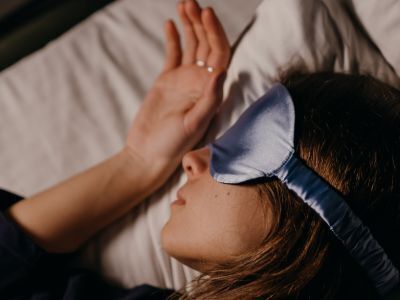Into the Darkness: How Light Cycles Affect Our Health

From the moment we wake up to when we close our eyes at night, light plays a fundamental role in shaping our lives. We often think of light in terms of convenience—illuminating our homes, aiding our work, and allowing us to see. However, the impact of light extends far beyond the practical. Our exposure to light, both natural and artificial, and the accompanying cycles of light and dark, significantly affect our physical and mental health. With the “dark season” coming as we advance from fall to winter it is pertinent to explore how light cycles influence our well-being, and why aligning ourselves with natural rhythms could be the one important and influential key to healthier living.
The Science Behind Light and Dark Cycles
Light and dark cycles are closely tied to the regulation of circadian rhythms, the body’s internal clock that operates on a roughly 24-hour cycle. This clock controls various physiological processes, including hormone secretion, sleep-wake patterns, and metabolism.5 Historically, humans have adapted to the natural transitions between sunlight and darkness. In today's world, however, artificial lighting has disrupted these patterns, creating a misalignment between our biological clock and the environment.11,14
At the heart of this system is a small area in the brain called the suprachiasmatic nucleus (SCN), which responds to light and dark signals to synchronize bodily functions.6,11 The SCN triggers the release of hormones such as melatonin, which promotes sleep during dark periods, and cortisol, which increases alertness during daylight.6,8

The Positives of Sunlight: A Mood Booster and More
We’ve all experienced how a bright, sunny day can lift our spirits. Sunlight, particularly in the morning, is a potent trigger for serotonin production, a neurotransmitter that helps stabilize mood and reduce feelings of depression.1,2This is especially important for individuals affected by Seasonal Affective Disorder (SAD), a type of depression that typically occurs during the darker months of winter. Regular exposure to sunlight can alleviate symptoms by stimulating serotonin and enhancing overall emotional well-being.3,4
Beyond mood regulation, sunlight plays a crucial role in synthesizing vitamin D, which is vital for skin health, immune function, and the regulation of calcium and phosphorus.3,4 Vitamin D not only strengthens bones but also supports immune responses, protecting the body against infections and autoimmune diseases.3,4 Additionally, research suggests that UV light from the sun can help regulate blood pressure by releasing nitric oxide in the skin, which improves circulation.3

Light Exposure and Alertness
Light, particularly blue light from the sun, is also essential for maintaining alertness and cognitive function. Studies have shown that exposure to bright light during the day, especially in the morning, can improve focus, memory, and mood.6,11 Blue-enriched light has been linked to enhanced wakefulness because it suppresses melatonin production, making us feel more alert and energized.6,11
This is where the problem of artificial light comes into play. The advent of modern lighting, particularly blue-enriched LED lights from screens and devices, has disrupted our natural light cycles. While exposure to natural light during the day helps us stay awake and focused, excessive exposure to artificial light at night can trick the brain into thinking it’s still daytime. This disrupts melatonin production, leading to sleep disturbances and circadian misalignment.13
The Role of Darkness in Sleep and Health
Just as light is necessary for alertness and vitality, darkness is equally important for rest and recovery. As evening approaches, the absence of light triggers the SCN to signal the pineal gland to produce melatonin.6 This hormone helps prepare the body for sleep, and darkness enhances its production, allowing for deeper, more restorative sleep.
A lack of adequate darkness, however, can have serious health consequences. Exposure to artificial light at night, whether from streetlights or screens, suppresses melatonin and interrupts the sleep-wake cycle.6,7 Over time, this disruption can lead to sleep disorders, mood disturbances, and even increased risks of certain cancers.6-9
Darkness also promotes the body’s natural repair processes. During deep sleep, the body engages in cell repair and DNA restoration, aided by the protective effects of melatonin.2,8 Studies have shown that melatonin not only improves sleep quality but also helps reduce oxidative stress and inflammation, both of which are linked to chronic diseases.3,4,6,8,10

Balancing Light and Dark: Practical Tips for Better Health
In our modern, artificially lit world, balancing exposure to light and darkness can be challenging. However, simple lifestyle adjustments can help synchronize our circadian rhythms and improve health.
Maximize Morning Sunlight Exposure: Start your day with natural sunlight by spending time outdoors or near a window. Morning light helps reset your internal clock, improving alertness and mood throughout the day.18,19
Limit Artificial Light in the Evening: As the day progresses, gradually reduce your exposure to artificial lighting, especially blue light from screens. Consider using blue light filters or dimming your lights in the evening to help signal your body that it’s time to wind down.12,13
Create a Dark Sleep Environment: Ensure your bedroom is as dark as possible at night. Use blackout curtains, turn off electronic devices, and eliminate light sources that might interfere with melatonin production.
Adopt Circadian-Friendly Lighting: Some modern lighting solutions mimic natural light by adjusting intensity and color throughout the day. These circadian lighting systems can support healthier sleep-wake cycles by providing brighter light during the day and warmer, dimmer light in the evening.
The Future of Circadian Research: What’s Next?
As researchers continue to uncover the intricate relationship between light, dark, and our health, there is growing interest in developing interventions that incorporate these natural cycles into clinical settings. In hospitals, for example, using controlled light-dark patterns to support patient recovery has shown promise in improving mood, reducing depression, and even enhancing recovery from illness.20
Additionally, future research may lead to more personalized medicine, where light exposure patterns are tailored to an individual’s specific circadian needs. By understanding and respecting the body’s natural rhythms, we can optimize not only our sleep but also our mental and physical health.1-19
Conclusion
Light and darkness are not simply elements of our environment; they are powerful forces that shape our biology. From enhancing mood and alertness to promoting deep sleep and cellular repair, the cycles of light and dark profoundly affect our health. By aligning ourselves with these natural rhythms—embracing the sun during the day and the dark at night—we can improve our overall well-being and reduce the risk of chronic illnesses. As we continue to illuminate the science of circadian rhythms, it becomes increasingly clear that the best way forward is to return to our roots: following the light and embracing the dark.
Join the Mederi Center community by signing up for our email list! We send several emails a month with product promotions for patients, practical tips for healthy living, blogs written by our practitioners, information about events, and other news. You can unsubscribe at any time.
Works Consulted
- https://blog.calm.com/blog/benefits-of-sunlight
- https://www.health.com/what-are-the-benefits-of-sunlight-8660083
- https://medium.com/science-for-life/the-radiant-benefits-of-sunlight-on-your-body-cf7e32ec510c
- https://nutritionsource.hsph.harvard.edu/vitamin-d/
- https://www.goodrx.com/health-topic/environmental/benefits-of-sunlight
- https://www.psychologytoday.com/us/blog/pathways-progress/202211/mental-health-sleep-and-circadian-rhythms
- https://en.wikipedia.org/wiki/Light_effects_on_circadian_rhythm
- https://pubmed.ncbi.nlm.nih.gov/32066704/
- https://nigms.nih.gov/education/fact-sheets/Pages/Circadian-Rhythms.aspx
- https://www.frontiersin.org/journals/photonics/articles/10.3389/fphot.2023.1272934/full
- https://factor.niehs.nih.gov/2023/11/feature/4-health-effects-of-light-and-dark
- https://pubmed.ncbi.nlm.nih.gov/28140399/
- https://www.cnn.com/2018/05/15/health/circadian-rhythm-mood-disorder-study/index.html
- https://news.harvard.edu/gazette/story/2024/07/between-bright-light-and-a-good-mood-plenty-of-sleep/
- https://sciencealert.com/time-spent-outdoors-has-powerful-effects-on-mood-sleep-massive-study-shows
- https://www.sleephealthjournal.org/article/S2352-7218(24)00179-7/fulltext
- https://www.news-medical.net/news/20231012/Daylight-heals-night-light-steals-The-surprising-link-between-light-exposure-and-mental-health.aspx
- https://www.abc.net.au/news/health/2024-01-05/what-are-the-health-benefits-of-sunlight/103154434
- https://www.hubermanlab.com/topics/light-exposure-and-circadian-rhythm
- https://pmc.ncbi.nlm.nih.gov/articles/PMC6287302/


